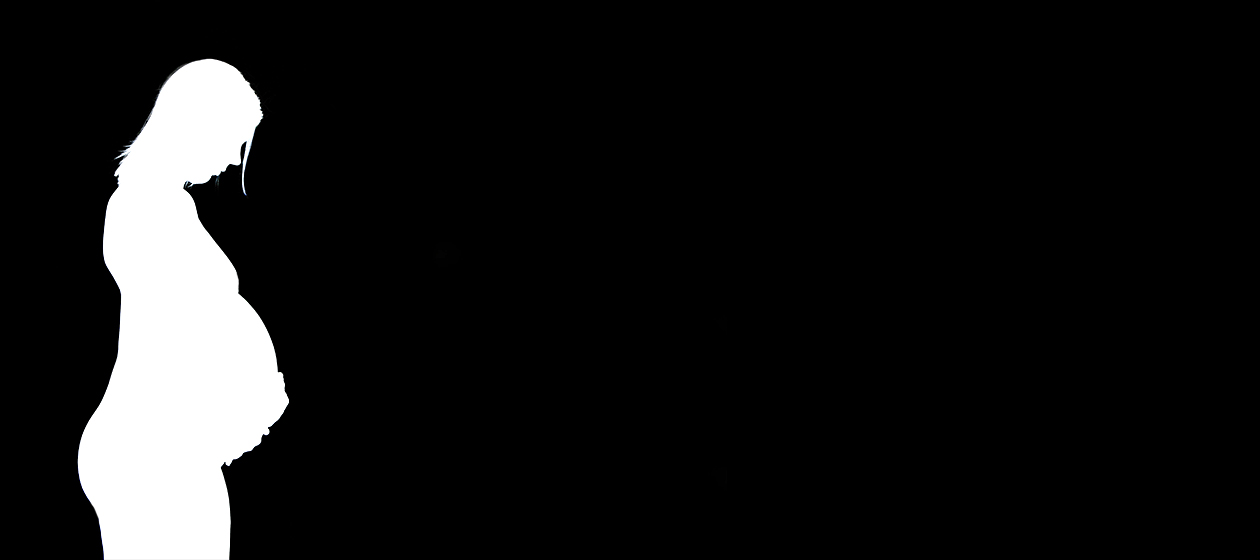I gained 30 pounds while pregnant — and my doctor fat-shamed me
"Have you been indulging in cravings?" my doctor asked. I was shocked.


A free daily email with the biggest news stories of the day – and the best features from TheWeek.com
You are now subscribed
Your newsletter sign-up was successful
My pregnancy, I thought, was off to a healthy start. I was still exercising four to five days a week, albeit not as rigorously, and eating healthy foods. Sure, due to first trimester nausea, my usual lunch of salad with lean proteins had become something more like a sandwich — and I occasionally let myself indulge with a little mayo and white bread. I was pregnant, after all!
Given that my habits had shifted, I wasn't surprised to learn at my first prenatal visit that I'd gained a little weight — about five pounds more than what we're told to expect. But when my doctor told me that my weight gain was a concern, I was shocked.
At 5-foot-3 and 128 pounds, even if I hadn't been pregnant, I would have been well within a healthy weight range. Still, the doctor frowned at the number on the chart, and asked: "Have you been indulging in cravings?" She suggested in her next breath that I cut back on carbs. "But I'm hungry!" I stammered. Up until this moment, pregnancy had been an affirming experience. I had basked in compliments and congratulations from strangers. Before being criticized by my doctor, I'd felt nothing but gratitude and appreciation for my growing belly. Now, I felt ashamed.
The Week
Escape your echo chamber. Get the facts behind the news, plus analysis from multiple perspectives.

Sign up for The Week's Free Newsletters
From our morning news briefing to a weekly Good News Newsletter, get the best of The Week delivered directly to your inbox.
From our morning news briefing to a weekly Good News Newsletter, get the best of The Week delivered directly to your inbox.
I get that, for some doctors, weight is just another data point, like blood pressure or the baby's heart rate. Some doctors may tell a patient "you're gaining too much weight" in the same way they might say "your blood pressure is too high." But for many patients, conversations about weight are, well, heavy. Experts say pregnant women in general have a more exaggerated sensitivity to changes to their body shape, and that the heightened sensitivity for individuals with eating disordered pasts can be acute. For patients with a history of eating disorders, pregnancy can trigger life-threatening behaviors like starvation or purging and put a pregnancy at high risk.
I've never been diagnosed with an eating disorder, but in my 20s I was obsessed with exercise and preoccupied by food. Over a decade later, I still have a lot of "rules" about what I will and won't eat. One of my main anxieties, prior to getting pregnant, was the inevitability of weight gain. I told myself to relax and believed that so long as I started my pregnancy at a healthy weight, the rest would follow. When I look back now, it's obvious that my weight gain was completely normal and due to the fact that I was pregnant. But instead of being reassured, and feeling empowered and informed, that day I left my doctor's office feeling frustrated and confused.
To be sure, there are legitimate reasons why doctors monitor weight gain. Excessive weight gain can lead to health complications during pregnancy, such as hypertension and gestational diabetes. Excessive gestational weight gain is also associated with postpartum weight retention, and that women who gain too much in the beginning are said to be at risk of gaining too much weight overall.
Doctors have to warn their pregnant patients of these and other potential complications. And yet, the one-size-fits-all advice we're sometimes given by physicians is often wrong, especially as it relates to weight. Studies show that gaining too much weight in pregnancy is better than gaining too little, and there isn't even any good science about exactly how much is "too much." Whereas weight gain during pregnancy is associated with larger babies, and thus more difficult deliveries, doctors aren't always correct in predicting baby weights — and larger babies don't always lead to difficult births. Incorrect predictions based on gestational weight gain can lead to unnecessary medical induction and unwanted c-sections.
A free daily email with the biggest news stories of the day – and the best features from TheWeek.com
Doctors need to treat their patients as individuals, and make recommendations that are tailored to that individual's needs. When it comes to talking about weight in general, and pregnant women specifically, doctors need to consider sensitivities around weight as well as the patient's individual history. When my husband and I first met the doctor, we went over both our medical histories, including my diet and exercise routine. Twelve weeks later, I felt like she had forgotten that entire conversation.
As it was, I never really felt like my doctor got it. After that first visit, I followed her instructions and watched what I ate, basically reverting back to my pre-pregnancy habits. As a result, I was hungry all the time, and struggled as I tried to work out just as hard and as often as I did pre-pregnancy. I managed to stay within the recommended allowances until my third trimester, when my weight gain hit 30 pounds some weeks before I was scheduled to give birth. At that point, when she tried to have the talk with me again, I ignored her. I should have done that sooner, but also, I shouldn't have to muster the nerve to ignore my doctor's advice.
Today, five months after giving birth to a normal-sized baby, I'm back to my pre-pregnancy weight, and I am overjoyed to be a mom. But I wont lie: I'm also still a little pissed off that my OB seemed to care more about my weight than about me or my baby.
Melissa Petro is a freelance writer and writing instructor living in New York City. She has written for Marie Claire, Pacific Standard, New York magazine's The Cut, Cosmopolitan, Redbook, Esquire, Jezebel, and many other places.
-
 How the FCC’s ‘equal time’ rule works
How the FCC’s ‘equal time’ rule worksIn the Spotlight The law is at the heart of the Colbert-CBS conflict
-
 What is the endgame in the DHS shutdown?
What is the endgame in the DHS shutdown?Today’s Big Question Democrats want to rein in ICE’s immigration crackdown
-
 ‘Poor time management isn’t just an inconvenience’
‘Poor time management isn’t just an inconvenience’Instant Opinion Opinion, comment and editorials of the day
